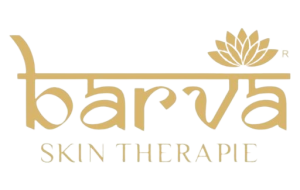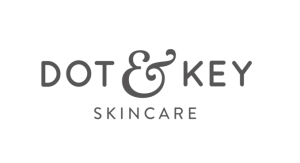A Global Overview of Skincare Industry Regulations: Why India is the Ideal Manufacturing Hub
The global skincare industry is a rapidly expanding market, driven by increasing consumer awareness about personal care, a desire for healthier skin, and innovations in cosmetic science. However, with this growth comes the crucial need for regulation to ensure product safety, efficacy, and transparency. Let’s take a closer look at how the skincare industry is regulated across the world, comparing the stringency of regulations in different regions, and why India stands out as the best destination for skincare manufacturing.
1. Global Regulation of the Skin care Industry
The skincare industry is among the most regulated sectors within the personal care and cosmetics markets, and for good reason. Skincare products are directly applied to the body, so their safety and efficacy are paramount. Regulations typically focus on aspects such as ingredient safety, labeling requirements, manufacturing practices, and marketing claims. However, the level of regulation varies significantly from one country to another.
2. Which Country Has the Most Regulations?
When it comes to the strictest regulations, the European Union (EU) takes the lead. The EU’s Cosmetics Regulation (EC) No 1223/2009 is considered one of the most comprehensive and stringent frameworks in the world. It mandates rigorous testing, prohibits the use of over 1,300 substances, and requires thorough documentation and assessment of product safety before a product can be marketed. The EU also enforces strict labeling requirements to ensure consumers are well-informed about the products they use.
3. Regulation of the Indian Skin care Industry
India, a rapidly growing market for skincare, has seen significant strides in regulatory oversight in recent years. The industry is governed by the Drugs and Cosmetics Act of 1940 and the Bureau of Indian Standards (BIS). While not as stringent as the EU, India’s regulations are evolving to meet international standards. The regulatory environment is geared towards ensuring safety, but it also allows for flexibility and innovation, making India a fertile ground for skincare manufacturing. The Indian government is also focusing on reducing red tape, enhancing ease of doing business, and aligning its standards with global best practices, further positioning India as an attractive manufacturing hub.

4. Regulation of the Chinese Skin care Industry
China is another major player in the skincare industry, with a regulatory framework that has become increasingly stringent over the years. The National Medical Products Administration (NMPA) oversees cosmetics regulation, including skincare. China’s Cosmetics Supervision and Administration Regulation (CSAR) came into effect in 2021, marking a significant overhaul of previous regulations. This new framework emphasizes product safety, efficacy, and transparency, with stricter requirements for ingredient safety and marketing claims. However, China’s regulations are still less stringent than those of the EU, especially in areas like animal testing, which remains a requirement for certain products.
5. Regulation of the American Skin care Industry
In the United States, the skincare industry is regulated by the Food and Drug Administration (FDA) under the Federal Food, Drug, and Cosmetic Act (FD&C Act). While the FDA does oversee the industry, it is often considered less stringent than the EU or China. The FDA does not require pre-market approval for cosmetic products (except for color additives), relying instead on post-market surveillance and consumer reporting. However, there is increasing pressure from consumer groups and legislators for more comprehensive regulations, particularly concerning ingredient safety and marketing claims.
6. Regulation of the European Skin care Industry
As previously mentioned, the European Union has the most stringent regulations for skincare and cosmetics. The EU’s framework requires extensive safety assessments, prohibits harmful substances, and enforces strict labeling standards. The regulation not only ensures consumer safety but also fosters trust in the products, as consumers are assured of their quality and efficacy. This high level of regulation means that products compliant with EU standards are often recognized and accepted in other markets worldwide.
7. Why India is the Best Country to Manufacture Skin care Products
India’s skincare manufacturing sector is on the rise, supported by a regulatory environment that strikes a balance between safety and innovation. The country’s commitment to aligning its standards with global practices, coupled with its cost-effective manufacturing capabilities and a vast pool of skilled labor, makes it an ideal destination for skincare production.
Moreover, India’s robust supply chain, access to diverse natural ingredients, and rapidly growing domestic market provide added advantages. The Indian government’s initiatives to enhance ease of doing business, such as simplifying regulatory approvals and offering incentives for manufacturing, further strengthen India’s position as the best country for skincare manufacturing.
Conclusion
The global skincare industry is shaped by diverse regulatory landscapes, with the EU leading in stringency, followed by China, the US, and India. However, India’s evolving regulatory framework, combined with its cost-effectiveness, innovation-friendly environment, and government support, makes it the most attractive destination for skincare manufacturing. As the world’s demand for skincare products continues to grow, India is poised to become a global leader in this dynamic industry.

Notable Clients









